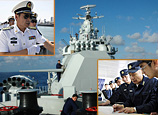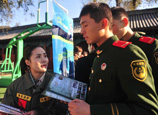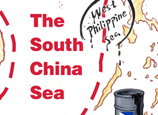
The Iranian speaker's visit followed a meeting in Tehran which aimed at strengthening Iran's agenda to support Syrian President Bashar al-Assad's political reforms and to counter the pushes to oust him from the power.
Upon his return to Tehran, Larijani said that the deployment of NATO missiles in Turkey will further put the regional stability at risk, Press TV reported on Sunday.
"In meetings with Turkey's top officials, we warned that the deployment of such systems will have adverse consequences and will exacerbate problems in the region," he was quoted as saying.
Also, Iranian Foreign Ministry spokesman Ramin Mehmanparast said Friday that deployment of NATO's Patriot missiles near the Syrian border in Turkey will only aggravate the crisis in Syria.
Mehmanparast denounced any move for militarizing the Syrian issue and stressed that it will be better for influential countries to look for political solutions for regional issues.
In a reaction to Iran's position, Turkish Foreign Minister Ahmet Davutoglu on Sunday dismissed Iranian concerns that the possible deployment of NATO missiles along Turkey's southern border with Syria would make the crisis more complicated.
"We cannot see any point that would justify these concerns. The missile system has a defensive purpose only. This system will not be operational unless there is a risk to our security. And it is our government's obligation to take any measure when there is even the slightest chance of risk," Davutoglu told a televised interview on private news channel CNN Turk.
In the meantime, a Turkish military statement said Monday that the deployment of NATO's Patriot missile system on the Turkish border with Syria is merely a defensive measure against threats from Syria.
The system was not for "no-fly zone or offensive operation," but "solely against possible air or missile threats from Syria," said the statement.

















 Pretty model shines at Guangzhou Auto Show Hyundai Motor stage
Pretty model shines at Guangzhou Auto Show Hyundai Motor stage


![]()
